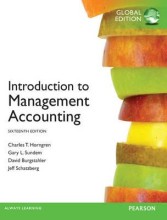Summary: Business Ethics
- This + 400k other summaries
- A unique study and practice tool
- Never study anything twice again
- Get the grades you hope for
- 100% sure, 100% understanding
Read the summary and the most important questions on Business ethics
-
Theories (virtue, deontological, consequental)
This is a preview. There are 33 more flashcards available for chapter 03/12/2020
Show more cards here -
What is an ethical dilemma?
Two or more values you hold dear (friendshipvs professionalism ) -
What is Consequentialist theories?
Is a theory that suggest an action is good or baddepending on its outcome. -
Indivial differences
This is a preview. There are 33 more flashcards available for chapter 03/12/2020
Show more cards here -
Cognitive moral development
Refers to the process whereby people form a progressive sense of what is right and wrong, proper and improper -
Culture
This is a preview. There are 4 more flashcards available for chapter 03/12/2020
Show more cards here -
How is a culture formed?
- A society's values dveloped through shared history and experiences over-time
- a system that contains values, beliefs and attitufes and behaviors shared by a group of people
-
What are characteristics of culture?
- Shared by members of a group
- culture is a relative concept
- culture is learned and transmitted
- Shared by members of a group
-
What are essential elements of culture?
- Values
- rationale
- identity
- authority
- Values
-
What is meant with the culture element of value?
The enduring belief that a specific mode of conduct or end state of existence is scoially preferable to alternatives. -
Cognitive barriers to good ethical judgment
This is a preview. There are 7 more flashcards available for chapter 03/12/2020
Show more cards here -
What are the cognitive barriers to good ethical judgment
- Barriers to fact gathering
- barriers to consideration of consequences
- thoughts about integrity
- paying attention to gut
- Barriers to fact gathering
-
What is meant with the confirmation trap?
People are inclined to accept facts or data that confirm their believes or convictions faster than facts or data that conflict with their believes or convictions -
What is meant with reduced number to considered consequences?
People not always make a wellbalanced ethical decision because they are unable to consider all the possibleconsequences , but instead only consider alimited number ofconsequences
- Higher grades + faster learning
- Never study anything twice
- 100% sure, 100% understanding






























